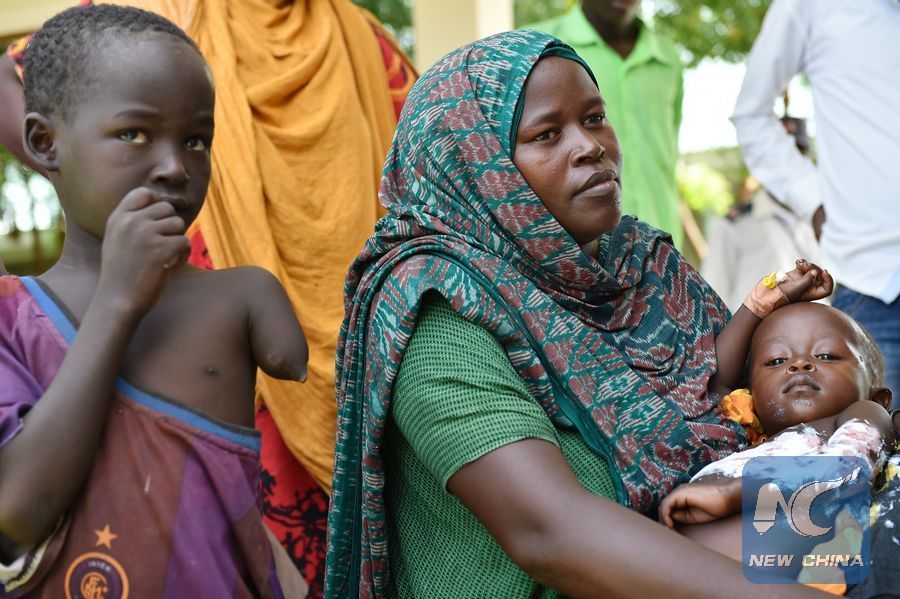
File photo shows a Somali refugee mother with her children pose for photos at Dadaab refugee camp in Kenya, May 8, 2015. (Xinhua/Sun Ruibo)
MOGADISHU, March 30 (Xinhua) -- The United Nations Children's Fund (UNICEF) on Thursday expressed concern about the rising number of children suffering from severe acute malnutrition (SAM) and cholera or acute watery diarrhoea (AWD) -- a combination that killed many children in the famine of 2011.
UNICEF Regional Director for Eastern and Southern Africa Leila Pakkala said over 18,400 cases of cholera/AWD had been reported since the beginning of the year, far surpassing the 15,600 cases reported in all of 2016.
The majority of the cases are among young children. "These numbers are a wake-up call," Pakkala said in a statement issued in Mogadishu after speaking with displaced families and patients at a cholera treatment center in Baidoa.
"Children are dying from malnutrition, hunger, thirst and disease. During the 2011 famine, around 130,000 young children died, about half of them before famine was declared. We are working with partners around the clock to make sure that doesn't happen again," she said.
According to UNICEF, more than 35,400 children suffering from SAM were treated with life-saving therapeutic food at hundreds of nutrition centers across Somalia in January and February, a 58 percent increase over the same period in 2016.
UNICEF Somalia has raised its 2017 funding requirement from 66 million U.S. dollars to 147 million dollars, with a funding gap of 54 percent as of mid-March.
"In 2011, funding poured in after the official declaration of famine in July. This year, many donors have come forward early. But the worst may still be ahead of us. We have a small window to prevent a massive loss of life," Pakkala said.
She said there are no precise figures currently available for the number of children who have died due to hunger or malnutrition, in part because many succumb to disease and infection.
But the official said children suffering from SAM are nine times more likely to die of disease than a well-nourished child. During the 2011 famine, the biggest killers were diarrhea and measles.
Six years since famine was declared in parts of south-central Somalia, the country is on the brink of catastrophe due to widespread of drought , affecting Somaliland, Puntland and pastoral areas of Somalia, in addition to the central and southern parts of the country.

